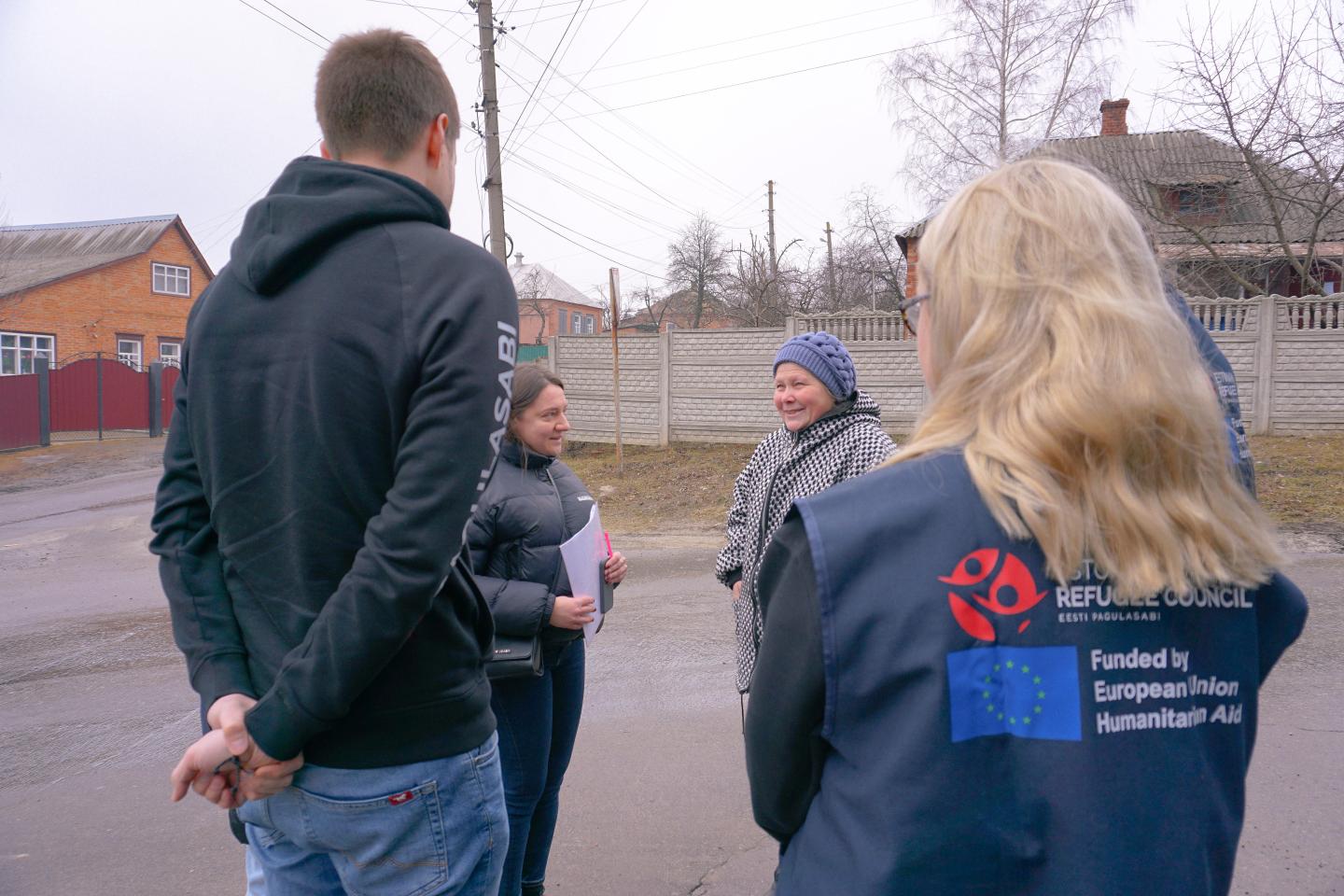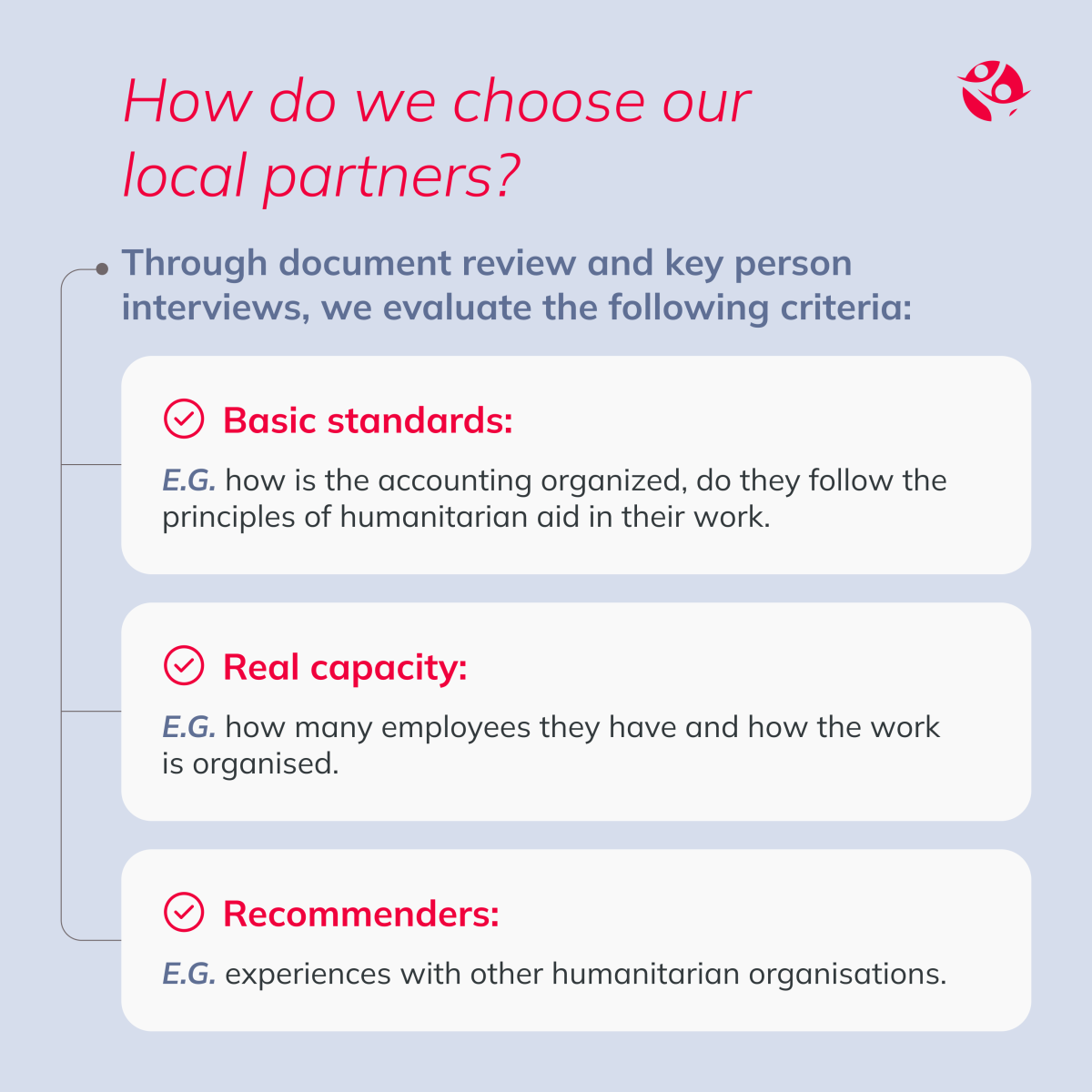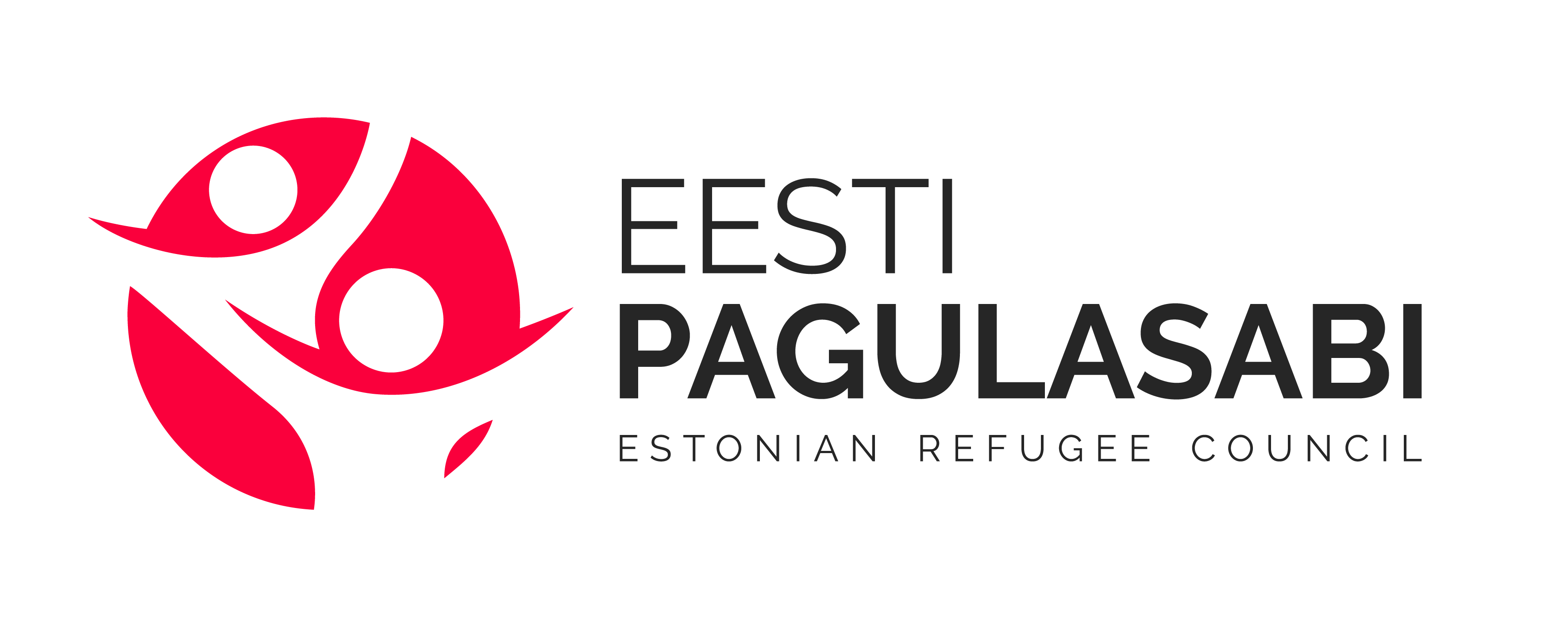
The everyday life of Estonian Refugee Council: how do we consistently ensure that money reaches where it needs to go
The world of coordinated and wide-ranging humanitarian aid has grown into a technical and rule-filled field, because it is often necessary to act in extremely complex circumstances in cooperation with other organisations and institutions. Proper preliminary work and control, risk mitigation and planning two steps ahead are our daily work. What have we done to be a transparent and reliable organisation?
- Estonian Refugee Council is one of the two international humanitarian organisations in Estonia certified by the European Union. This certificate means that all internal procedures of Estonian Refugee Council - from financial management and procurement procedures to program design and evaluation - have been independently audited and evaluated. The certificate application procedure is a comprehensive process that we went through in 2021.
- Estonian Refugee Council is also a strategic partner of the Ministry of Foreign Affairs of Estonia and has joined the principles of good donation collection.
- The annual reports of Estonian Refugee Council are audited and freely available on our website under documents. The statute of the Estonian Refugee Council can also be found on the website, which stipulates, among other things, our mandate and management structure.
How do we operate in our countries of destination?
To implement our activities in the countries of destination, we use two different approaches, taking into account the needs, situation and peculiarities of the target country.
- In the first case, we have registered and opened our local representative office in the destination country. In addition to Estonia, we also have offices in Ukraine and Jordan. In these countries, we ourselves are the direct implementers and inspectors of activities, although there we can also be supported by local cooperation partners.
- In countries where we ourselves are not locally registered, such as Georgia and Kenya, we carry out our activities through reliable partners.
How do we choose our local partners?
When choosing partners, both in the countries where we are registered and in those where we only work through partners, it is important for us to go through the so-called due diligence process. This means that we assess our potential partners' compliance with certain basic standards, such as how they organise their accounting and whether they follow the principles of humanitarian aid in their work; their real capabilities, such as how many employees they have and how they have organised their work. Then we also review the recommenders, for example if they have worked with another humanitarian organisation, we ask them about their previous experience. We do all this through document review and interviews with key people. We have long-term partners in, for example, Georgia and Kenya, where we have already cooperated with the same organisations for a long time.

How can we be sure that our partners handle money correctly?
Once the partners have been selected and the activities are underway, we regularly carry out financial checks and on-site visits in accordance with the signed contracts. We also collect feedback from our beneficiaries directly, without intermediaries, in order to have a continuous direct picture of the satisfaction and feedback of the beneficiaries, regardless of whether we implement the activities ourselves or through partners. This entire process is monitored and audited by our institutional funders in addition to our own internal controls.
Undoubtedly, each country's context is different, and we must operate in complex circumstances when providing humanitarian aid. Our internal systems and processes are such that they are suitable for different circumstances and contexts. For example, there are countries where the majority of the economy operates in cash, which at the same time increases the risk of fraud and theft. In order to cope even in such circumstances, we have strict internal rules and tools for working in cash-based conditions in such a way that every last euro is clearly accounted for. We also carry out thorough checks on our partners to ensure that their internal systems and rules are as clear and strict as our own.
What principles do we follow in our daily work?
When providing humanitarian aid, we must always be guided by four principles: humanity, independence, need-based and neutrality. In Estonia, we quite often see how activities that are not actually humanitarian aid are also called humanitarian aid; for example, aid to military personnel. When providing humanitarian aid, we must always ensure that the aid we provide does not end up in the wrong hands and does not put the people we help in greater danger than they were before (the so-called "do no harm" principle).
We must also ensure the safety of our employees and at the same time be responsible to our donors, both large international organisational donors and private donors. Undoubtedly, it is difficult to design and implement activities that fulfill all these conditions at the same time - that is why the field of humanitarian aid is very technical, full of rules and complex. At the same time, Estonian Refugee Council has long-term experience in providing humanitarian aid in different countries and our employees have the necessary educational and practical training to do this work.
In the last year, Estonian Refugee Council has grown into the largest non-governmental organisation in Estonia. We employ nearly 100 people in different offices (Tallinn, Tartu, Kyiv, Zaporizhia, Ramtha). Over the past year, we have provided cash-based aid to more than 220,000 people in Ukraine, having distributed more than 33 million euros in a systematic and need-based manner. In addition, we have been involved in the distribution of food aid, the delivery of generators and the promotion of small business in the conditions of war. This entire program is monitored and audited by our donors, including the European Union through ECHO, the UN-managed Ukrainian Humanitarian Fund, the International Rescue Committee, the Estonian Ministry of Foreign Affairs, and others.
